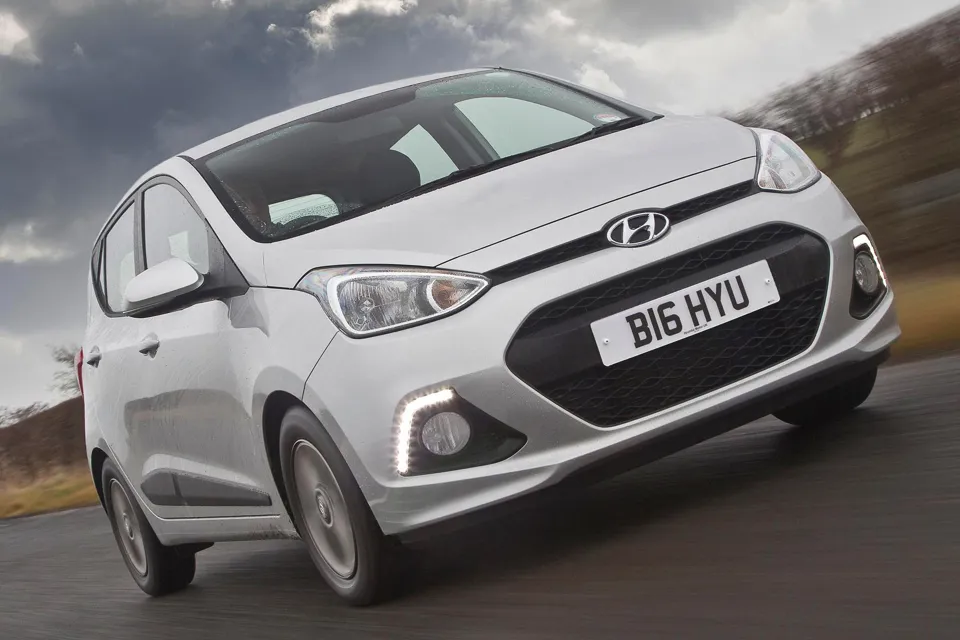Hyundai, Suzuki and Kia were the top ranking manufacturers in JD Power’s 2018 UK Vehicle Dependability Study as new technology hampered the reliability of premium cars.
The most reliable 13 car brands in the UK were volume brands in the 2018 study, which determined dependability by the number of problems experienced per 100 vehicles (PP100), with a lower score reflecting higher quality.
Hyundai ranked highest in overall with a score of 78 PP100, with Suzuki second with 87 PP100, followed by Kia with 94 PP100.
Mercedes-Benz (124 PP100) emerged as the highest-ranking premium brand, in 14th overall.
German premium car rival BMW featured dead last, however, coming bottom of the pile with a score of 192, followed by Fiat (177) and Audi (175).
 In its findings JD Power said that technology problems continue to be common for owners after one-to-three years of car ownership, with Bluetooth throwing up pairing/connectivity issues and voice recognition not recognizing commands among the six most common problems in the UK VDS.
In its findings JD Power said that technology problems continue to be common for owners after one-to-three years of car ownership, with Bluetooth throwing up pairing/connectivity issues and voice recognition not recognizing commands among the six most common problems in the UK VDS.
Josh Halliburton, head of European Operations at JD Power, said: “Automotive systems are more complex than they’ve ever been and premium brands especially are incorporating autonomous driving building blocks—adaptive cruise control, lane keep assist, automatic braking—into their models.
“It’s imperative for manufacturers to address this issue in order to improve the level of consumer trust in the technology.”
The 2018 UK Vehicle Dependability Study is based on responses from 13,536 owners of new vehicles registered from February 2015 through February 2017. The study was fielded from February through April 2018.
Now in its fourth year, it measures problems experienced during the past 12 months by original owners of vehicles in the UK after 12-to-36 months of ownership.
The study examines 177 problem symptoms across eight categories: vehicle exterior; driving experience; features/controls/displays (FCD); audio/communication/entertainment/navigation (ACEN); seats; heating, ventilation and air conditioning (HVAC); vehicle interior; and engine and transmission.
Although not common, owners also still worry about engine and transmission problems, as they are the most dangerous or costly, according to the study.
Despite advances in technology, the most severe problem in the industry remains an engine failing to start.
The study said that a customer’s experience of any of the 10 most severe problems strongly affects their satisfaction, stating that a fault will see the APEAL (Automotive Performance, Execution and Layout) Index drop well below the industry average of 767 (on a 1,000-point scale).
“The most severe problems result in a 5-13% drop in APEAL scores when they occur”, it said.
Among owners who experienced no problems with their vehicle, 54% say they “definitely will” purchase/lease the same brand again.
Among those who experienced one of the top 10 highest-severity problems, only 37% say they “definitely will” purchase/lease the same brand again.
Analysis of franchised car retailers’ Net Promoter Score® (NPS) was also taken into account for the first time to the 2018 UK VDS.
Among the top performing brands, fourth-placed Škoda also shone, with two models (Octavia and Yeti) receiving segment awards for their overall dependability.
The Hyundai i10, Volkswagen Tiguan, Mercedes-Benz E-Class (the highest-ranking premium vehicle in the UK), Vauxhall Insignia and Peugeot 208 also received segment awards.















Login to comment
Comments
No comments have been made yet.